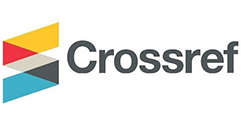Eros at Episteme: Ang Agham bilang Pag-Ibig sa Kosmos
Abstract
References
Alioto, Anthony M. A History of Western Science. Englewood Cliffs, NJ: Prentice-
Hall, 1987.
Applebaum, Wilbur. The Scientific Revolution and the Foundations of Modern
Science. Westport, CT: Greenwood Press, 2005.
Basalla, George. “The Spread of Western Science.” Science, New Series, 156, blg.
3775 (5 Mayo 1967): 611-622.
Brockman, John, patn. Is the Internet Changing the Way You Think? The Net’s
Impact on Our Minds and Future. New York: HarperCollins, 2011.
Burtt, Edwin Arthur. The Metaphysical Foundations of Modern Physical Science.
Garden City, NY: Doubleday, 1954.
Carr, Nicholas. The Shallows: What the Internet is Doing to Our Brains. New
York: W.W. Norton, 2011.
Chalmers, A.F. What Is This Thing Called Science? 3d ed. Indianapolis: Hackett
Publishing, 1999.
Cornford, Francis MacDonald. From Religion to Philosophy: A Study in the
Origins of Western Speculation. New York: Harper, 1957.
Engelmann, Hugo O. “What is Modern Science?” Sociological Quarterly 3, blg. 1
(Enero 1962): 3-15.
Farmelo,Graham, patn. It Must Be Beautiful: Great Equations of Modern Science.
London: Granta Books, 2002.
Feyerabend, Paul. “How to Defend Society against Science.” Sa Introductory
Readings in the Philosophy of Science, 3d ed, pinamatnugutan nina E.D.
Klemke, Robert Hollinger, at David Wyss Rudge, 54-65. Amherst, NY:
Prometheus Books, 1998.
Gower, Barry. The Scientific Method: An Historical and Philosophical
Introduction. London: Routledge, 1997.
Greenfield, Susan. “Modern Technology is Changing the Way Our Brains Work,
Says Neuroscientist.” Mail Online, 10 Disyembre 2013. Tiningnan
10Disyembre 2013. http://www.dailymail.co.uk/sciencetech/
article-565207/Modern-technology-changing-way-brains-work-saysneuroscientist.
html.
Hume, David. An Enquiry concerning Human Understanding and Other
Writings. Pinamatnugutan ni Stephen Buckle. Cambridge: Cambridge
University Press, 2007.
Kleinman, Daniel Lee. “Beyond the Science Wars: Contemplating the
Democratization of Science.” Politics and the Life Sciences 17, blg. 2
(Setyembre 1998): 133-145.
Koertge, Noretta. “‘New Age’ Philosophies of Science: Constructivism, Feminism
and Postmodernism.” British Society for the Philosophy of Science 51
(2000): 667-683.
Kosso, Peter. A Summary of Scientific Method. Dordrecht: Springer, 2011.
Laplace, Pierre-Simon. A Philosophical Essay on Probabilities. Isinalin
nina Frederick Wilson Truscott at Frederick Lincoln Emory. New York:
John Wiley & Sons, 1902. (Essai philosophique sur les probabilités,
1814).
Levitt, Norman, at Paul R. Gross. “Academic Anti-Science.” Academe 82, blg. 6
(Nobyembre- Disyembre 1996): 38-42.
Lindberg, David C. The Beginnings of Western Science: The European Scientific
Tradition in Philosophical, Religious, and Institutional Context, Prehistory
to A.D. 1450, 2d ed. Chicago: University of Chicago Press 2007.
Lloyd, G.E.R. The Revolutions of Wisdom: Studies in the Claims and Practice of
Ancient Greek Science. Berkeley: University of California Press, 1995.
Marcuse, Herbert. “On Science and Phenomenology.” Sa Proceedings of the
Boston Colloquium for the Philosophy of Science, 1962-1964
(Boston Studies in the Philosophy of Science, vol. 2 In Honor of Philipp
Frank, pinamatnugutan nina Robert S. Cohen at Marx W. Wartofsky,
279-290. New York: Humanities Press, 1965. Tiningnan 10
Disyembre 2013. http://www.autodidactproject.org/other/marcuse7.
html.
Marcuse, Herbert. One-Dimensional Man: Studies in the Ideology of Advanced
Industrial Society. Boston: Beacon Press, 1964.
McClellan, James E. III, at Harold Dorn. Science and Technology in World
History: An Introduction, 2d ed. Baltimore: Johns Hopkins University
Press, 2006.
Nadin, Mihai. “Science and Beauty: Aesthetic Structuring of Knowledge.”
Leonardo 24, blg. 1 (1991): 67-72.
Plato. The Symposium. Isinalin ni Christopher Gill. London: Penguin, 1999.
Popper, Karl R. Conjectures and Refutations: The Growth of Scientific
Knowledge. New York: Basic Books, 1962.
Principe, Jesus Deogracias Z. “Learning How to Love: The Ascent of Plato’s
Symposium.” Paper presented at the national conference of the
Philosophical Association of the Philippines (PAP), Tanay, Rizal,
Philippines, 10-12 April 2013.
Rees, Martin. Just Six Numbers: The Deep Forces That Shape the Universe. New
York: Basic Books, 2000.
Restivo, Sal. “Modern Science as a Social Problem.” Social Problems 35, blg. 3
(Hunyo 1988): 206-225.
Ross, Sydney. “Scientist: The Story of a Word.” Annals of Science 16, blg. 2
(1962): 65-85.
Shapin, Steven, at Simon Schaffer. Leviathan and the Air-Pump: Hobbes, Boyle,
and the Experimental Life (Including a translation of Thomas Hobbes,
Dialogus physicus natura aeris, by Simon Schaffer). Princeton, NJ:
Princeton University Press, 1985.
Shapin, Steven. “Here and Everywhere: Sociology of Scientific Knowledge.”
Annual Review of Sociology 21 (1995): 289-321.
Thomas, Lewis. “Hubris in Science?” Science, New Series, 200, blg. 4349 (30
Hunyo 1978): 1459-1462.
Watson, James D., at Francis H.C. Crick. “A Structure for Deoxyribose Nucleic
Acid.” Nature 171 (1953): 737-738.
Whitman, Walt. “When I Heard the Learn’d Astronomer.” Sa The Oxford Book
of American Poetry, patn. David Lehman, 145. Oxford: Oxford University
Press, 2006.







